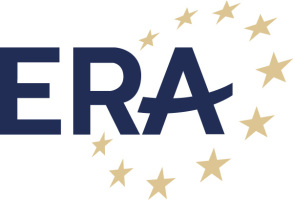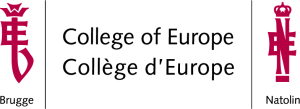Featured Publishers
The META Group specialises in maximising research impact and solving societal challenges through innovative solutions.With over 30 years of experience, we have collaborated with more than 2,000 consortia and 500 companies across diverse sectors, including partnerships with the European Commission, regional governments, development agencies, investors, research organisations, and start-up. Our approach emphasises pioneering problem-solving, aiming to optimise the journey from idea to market. We offer a range of services including:• Knowledge Valorisation: Assisting in ensuring research results generate impact.• Access to Risk Capital: Helping talents prepare for early-stage funding.• Innovation Policy: Working at the intersection of research and policy to bring innovations to market.• Capacity and Competence Building: Offering training and capacity building to support knowledge-intensive growth.• Technical Assistance: Providing tailored solutions for researchers, entrepreneurs, and policymakers.
Pin
Open
European Fund Management Consulting – EFMC – is one of the leading organisations in Europe that specialised in the financial management of European Union Research & Innovation projects (FP7 & H2020). Established in January 2014, EFMC has its headquarters in Tallinn, Estonia and back-office in Paris, France. Our organisation supports beneficiaries of European Grants in all financial issues concerning European projects. The main specialization is research grants such as FP7 and H2020.Our clientele includes SMEs, Universities, laboratories, private and public companies, NGOs and research centres from all over Europe and our partners are mainly Financial and Project Managers who are in charge of EU research projects (mainly FP7 & H2020).
Pin
Open
Századvég Group has been an important player in the Hungarian consulting market for many years, with its macroeconomic analyzes, forecasts of its economic activity and sectoral analyzes. You can rely on experts with extensive knowledge and experience in our macroeconomic, energy, digital and healthcare divisions, and in the planning and drawing up funds from the European Union. The employees, with external experts took part in several sectoral strategy and development policy making and planning in the field of digital economy, healthcare, SME development, energy, financial instruments and development policy coordination.
Pin
Open
Acavent is a worldwide organizer of scientific conferences, workshops, and exhibitions. Our international company headquarters is based in Vilnius, Lithuania and we already have 10 years of experience in the events industry. Acavent is specialized in creating an academic environment for those who seek new ideas, new achievements, highly skilled academic people, and colleagues all over the world. As a Professional Conference Organizer, Acavent creates, organizes and plans conferences and events in various fields of science. Acavent also offers a thorough list of services required in organizing and holding in-person and online conferences for organizations, companies, and academic institutions. At Acavent, we gather professors, scholars, students, scientists, profit and non-profit organizations, research centers, fast-growing startups, and policymakers, to share ideas, knowledge and skills, to network and foster collaborative interdisciplinary research.
Pin
Open
ICONS is a non-profit organization whose mission is to bridge the gap between science and society through science communication, social and business innovation. ICONS supports researchers and innovators in maximising their impacts on society through impactful strategies involving citizens, scientists, investors, policy makers and the media.
Pin
Open
Bax & Company is a sustainable innovation consultancy, working on international solutions to global challenges in fields like climate adaptation, mobility, smart cities and energy efficiency.
Pin
Open
The Centre for Sustainability and Excellence (CSE) is a multi-awarded global boutique company, specialized in global sustainability consulting, coaching and training to help organizations grow, innovate and maximize their impact through Sustainability. Through advanced certified onsite and online training programs and integrated consulting services, CSE supports organizations to createSustainability Plans to increase stakeholder engagement and branding, increase their social impact and improve their environmental footprint, report their Sustainability achievements and improve ESG ratings to gain a competitive advantage. With global accreditations and affiliations, CSE has trained over 6,000 professionals, many from the Fortune500.
Pin
Open
We are non-profit organisation, established in 1995, which stands up for science-based information on food and health.Our mission is to offer accessible, appealing and actionable science based information on food and health to inspire and empower people to make better decisions about diet and lifestyle.At EUFIC, we are a group of passionate science and communication experts who believe in the power of informed consumers and in a world where people choose to live healthily because they know how to.
Pin
Open
The Academy of European Law (ERA) enables judges, lawyers in private practice, business and public administration, academics and others who encounter legal issues in their work to gain a wider and deeper knowledge of the diverse aspects of European law. Through conferences, seminars, study visits, language courses, training projects and publications, it serves as an interface between the European legal profession and the decision-making centres of Brussels, Luxembourg and Strasbourg.
Pin
Open

Institute of Computer Vision and Applied Computer Sciences IBaI
Germany
Non-profit sector
1 Sep 2009
We are developing innovative computerized Techniques for new processes, products and services.Life Sciences Cell Image Analysis and Interpretation Motion Analysis High-Content Screening Spectrum Analysis Computational Systems BiologyMultimedia Image Analysis Ontologies Video Recognition Image Data BasesData/Image/Web Mining Classification Clustering Case-Based ReasoningWorld Wide Web Recommendation Systems Behavioral Targeting Customer Profile Analysis Detection of rare/novel Events Internet of Things
Pin
Open
Over the past 70 years, the College of Europe has built a solid reputation for its knowledge, innovation and leadership on EU affairs. As part of its mission, the College of Europe in Bruges has been providing executive education, professional trainings and consultancy services since 1996. To do so, the College relies upon its extensive network of professors, including academics and practitioners from the public and the private sector, trainers, experts and alumni. On the one hand, as centre of excellence in professional training on EU affairs, the College delivers executive and tailor-made courses (with an average of more than 4,000 participants from over 65 different countries per year). The learning methodology and training techniques used allow participants to truly invest in their professional development: sharpening their competences and skills; thus, being genuine catalysts for lasting change and professional success. Read more about our executive education offer and our tailor-made courses. On the other hand, given its expertise on the European Union and its policies, the College, as a non-profit institution, has been offering services in the framework of projects funded by the European Union and other international donors. Through the successful implementation of more than 250 international projects (from technical assistance, service and framework contracts to academic cooperation and research projects) implemented in more than 40 countries across the world, the College is nowadays an established reference in project management. Read more about our projects. Who we are The Executive Education, Training & Projects Office (previously Development Office) was established in Bruges in 1996 and consists of a multinational team with solid experience in designing learning services targeting professionals and in managing European and worldwide projects. What we can offer tailor-made services from a competent team that is capable of responding to your needs; high-quality results drawing on the expertise of one of the most genuinely European university institutes, which was founded in 1949; exclusive networking possibilities with EU professionals, professors, alumni and partners.
Pin
Open
Yellow Window is a design and management consultancy company, founded in 1989, specialised in policy design, service design and product design. In the framework of the policy design work, we engage in applied, qualitative, decision-support research with an emphasis on co-creation and solution-oriented research. While most assignments are for the European Commission, the company has also worked for other EU institutions.The multi-disciplinary, multi-cultural and multi-lingual team has specific expertise in the domains of (gender+) in-/equalities, capacity-building, as well as the promotion of social and institutional change.More information and references can be found on our website: www.yellowwindow.eu
Pin
Open











